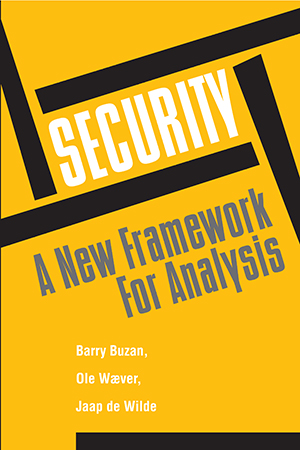Traditionalists in the field of security studies tend to restrict the subject to politico–military issues; while wideners want to extend it to the economic, societal, and environmental sectors. This book sets out a comprehensive statement of the new security studies, establishing the case for the broader agenda.
The authors argue that security is a particular type of politics applicable to a wide range of issues. Answering the traditionalist charge that this model makes the subject incoherent, they offer a constructivist operational method for distinguishing the process of securitization from that of politicization. Their approach incorporates the traditionalist agenda and dissolves the artificial boundary between security studies and international political economy, opening the way for a fruitful interplay between the two fields. It also shows how the theory of regional security complexes remains relevant in today's world.
Barry Buzan is Montague Burton professor of international relations at the London School of Economics and Political Science. His numerous publications include People, States, and Fear: The National Security Problem in International Relations and (with Ole Wæver et al.) Identity, Migration, and the New Security Agenda in Europe. Ole Wæver is professor of international relations and world politics at the University of Groningen. He is author (with Pim den Boer and Peter Brugge) of The History of the European Idea. Jaap de Wilde is lecturer in international relations at the University of Twente (the Netherlands). He is author of Saved from Oblivion: Interdependence Theory in the First Half of the 20th Century and editor (with Hakan Wiberg) of Organized Anarchy: The Role of States and Intergovernmental Organizations.
"A sophisticated attempt to synthesize political realism, a widened security agenda, and a constructive approach."—Paul T. Hart, Journal of Contingencies and Crisis Management
"An ambitious and valuable attempt to engage analysis of security with contemporary social theory and current political issues."—April Carter, Political Studies
"A careful and precise reading of this book is enormously rewarding and a re-read probably more so. It will become an important and possibly definitive reference work in the field of security studies.... A remarkable piece of work which will surely remain required reading for many years to come."—Chris Smith, International Affairs
"A sophisticated and important work.... provides insights into both traditional and emergent thinking, as well as developing a powerful and innovative new perspective."—Michael Williams






